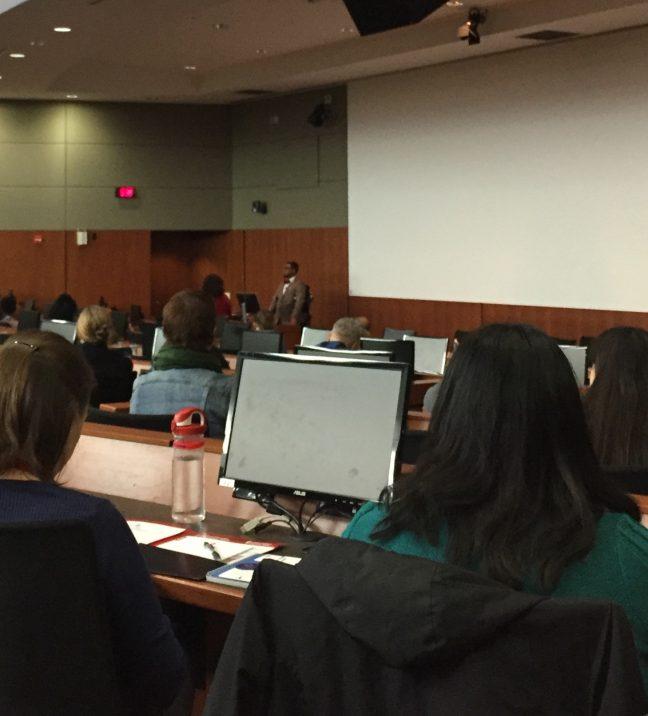Visiting professor and doctor Feranmi Okanlami discussed his work as an advocate for African Americans in the medical field at a keynote lecture hosted by the Human Resources Equity and Inclusion of the School of Medicine and Public Health Tuesday evening.
Born in Nigeria and raised the United States, Okanlami attended Stanford University for his undergraduate degree, later went on to University of Michigan-Ann Arbor for his medical degree and then completed his orthopedic residency at Yale University.
Despite his success as a track and field athlete and a student, he described his experience while studying at Stanford and Michigan as an African American male in the medical field as one filled with constant pressures of doubt and rejection.
Okanlami recalls being pushed to do better by the chief of surgery during his first year of residency. The chief knew he would be held to a different standard than his peers.
“Despite my best efforts, I would be told that I am wrong, I will not get the credit I deserve, and I would be viewed as inferior by my peers,” Okanlami said.
During the third year of his residency, he suffered a spinal injury that resulted in paralysis from the chest downward. After surgery and several months of therapy, Okanlami regained some movement in his upper body and began his practice again.
Through this accident and the struggle of being treated and judged by his peers and even his patients, Okanlami used his story to inspire and encourage others by continuing his education. He worked to create a device that helps the accuracy of spinal repair, and went to Notre Dame as a Thesis Advisor for Engineering Science.
Young African American men lack role models and information about medical school funding, Okanlami said. He hopes that by addressing these problems, more young African American men will be inspired to become physicians.
“My story is about what makes it possible to achieve that dream, despite whatever obstacles are perceived to be the way,” Okanlami said.


